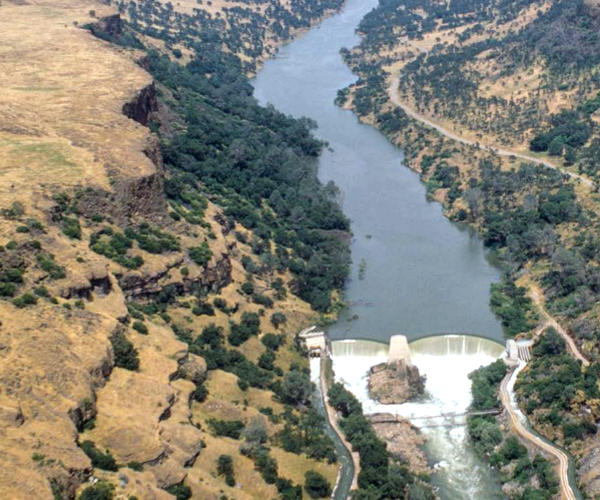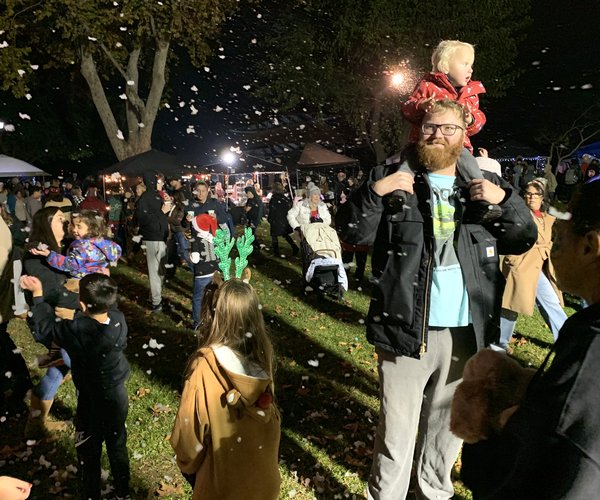Two bills introduced by California representative Josh Harder of the Central Valley have been passed, dealing with payment for fire departments and continuing efforts to eradicate the invasive rodent, nutria.
On Dec. 17, the House of Representatives passed Harder’s Fire Department Repayment Act to ensure local departments are fairly and quickly compensated for fighting fires on federal lands. Harder first introduced the bill after meeting with local fire chiefs, and hearing departments were waiting over a year for the federal funds. In part due to a shortage of wildland firefighters, local fire departments are often asked to respond to fires on federal lands which can be very costly between staff pay and equipment costs.
“As the wildfire crisis keeps getting longer and more dangerous, our local firefighters are being asked to do more and more dangerous work to keep our families safe,” said Harder. “When fires break out on federal land, local firefighters answer the call, whether or not they’re waiting on reimbursement from the last fire they put out. The federal government isn’t reimbursing fire departments for their services quickly enough, and it’s unacceptable for the government to skip out on the bill. This legislation forces the federal government to do the right thing and get our fire departments paid ASAP.”
The Fire Department Repayment Act ensures that the agreements local fire departments enter with the federal government are completed more transparently and in a timely manner, helping give fire departments clarity about when and how much they will be reimbursed for wildfire costs. Specifically, the bill establishes standard operating procedures for fire suppression costs agreements; reviews and modifies fire suppression costs agreements as necessary; ensures the fire suppression costs agreements align with cooperative fire protection agreements; and expedites reviews of standard operating procedures.
On Dec. 18, Harder’s bipartisan bill to continue funding nutria eradication efforts in California and across the country passed the House. Nutria are a semi-aquatic invasive species of rodent from South America – these giant swamp rats have large “nacho cheese” teeth that they use to chew through vegetation and water management systems, wreaking havoc on their non-native environment and causing millions of dollars in damage. After nutria started taking over waterways in the Valley, Rep. Harder introduced legislation to expand the Nutria Eradication and Control Act to include California.
Nicknamed “swamp rats”, nutria can weigh upwards of 40 pounds, and eat 25 percent of their body weight in vegetation every day, and one female nutria can reproduce 200 offspring in a year. These destructive rodents pose a significant threat to the Valley’s crops, levees, and waterways. Efforts to eradicate nutria from the region have been successful, but Harder’s bill is crucial to keep up the work and get nutria out of California for good.
“Nutria might look cute to some, but these giant swamp rats and their nacho cheese teeth are dangerous and they’re causing serious damage,” said Harder. “Efforts to kick these invasive rodents to the curb have been working, and now isn’t the time to take our foot off the gas. From the moment they first showed up in the Valley and started wreaking havoc on our crops and waterways, it was clear we had to act quickly. I’ll keep working to build on the progress we’ve made until every last swamp rat is gone.”
There has been significant progress made in eradicating nutria from the region, but between the end of 2022 and early 2024, nutria were detected in new locations outside of the original infestation area. The newly infested areas include the northwestern Sacramento-San Joaquin Delta (Suisun Marsh, Sherman Island) and throughout the San Joaquin River corridor in Fresno County. Because of the spreading infestation, nutria eradication efforts have expanded to a significantly larger geographic area. Funding for nutria eradication efforts is essential as Fish and Wildlife teams keep working to remove nutria as they invade new areas.





